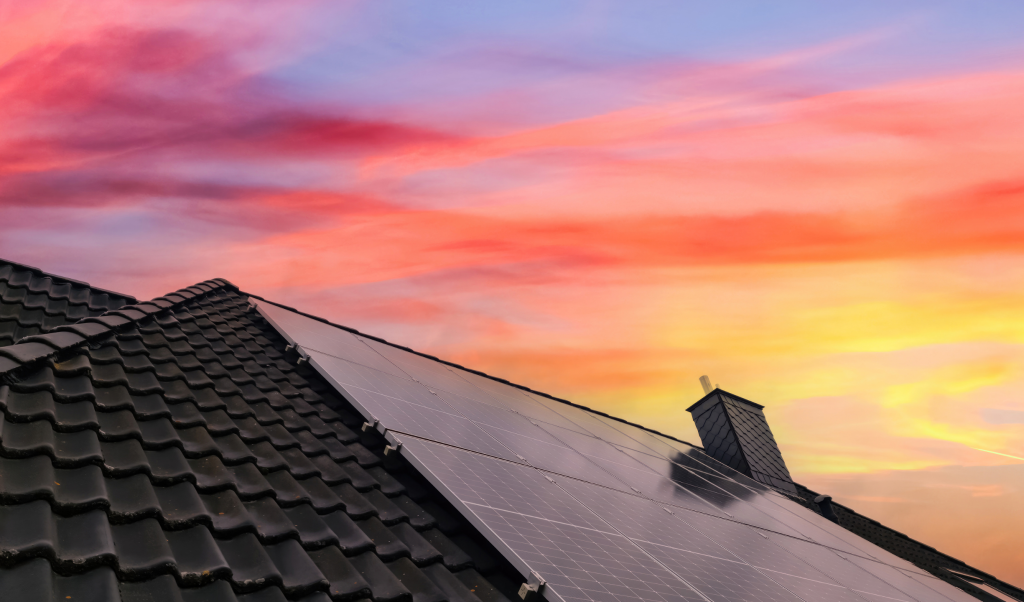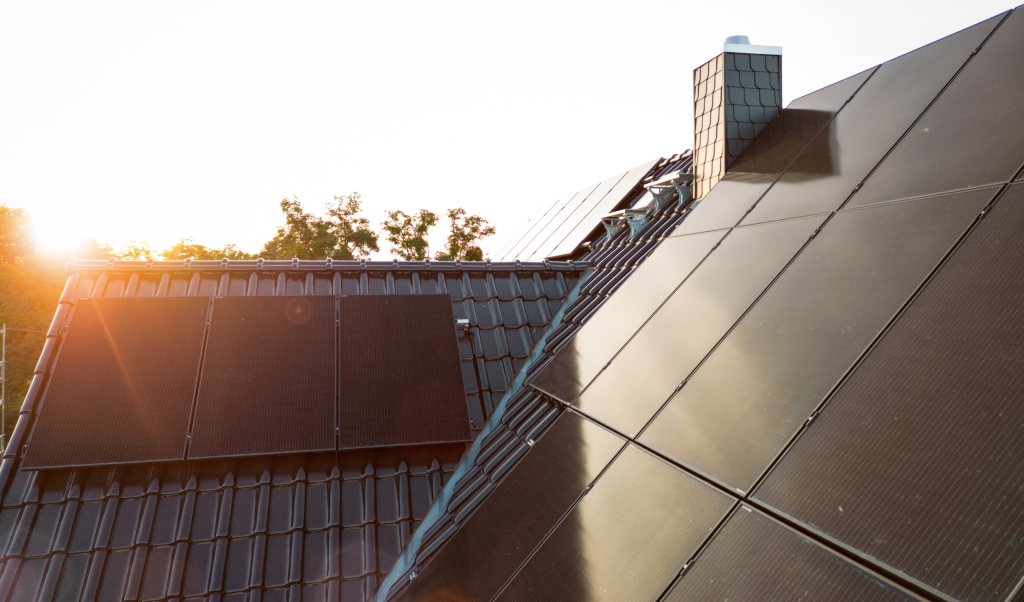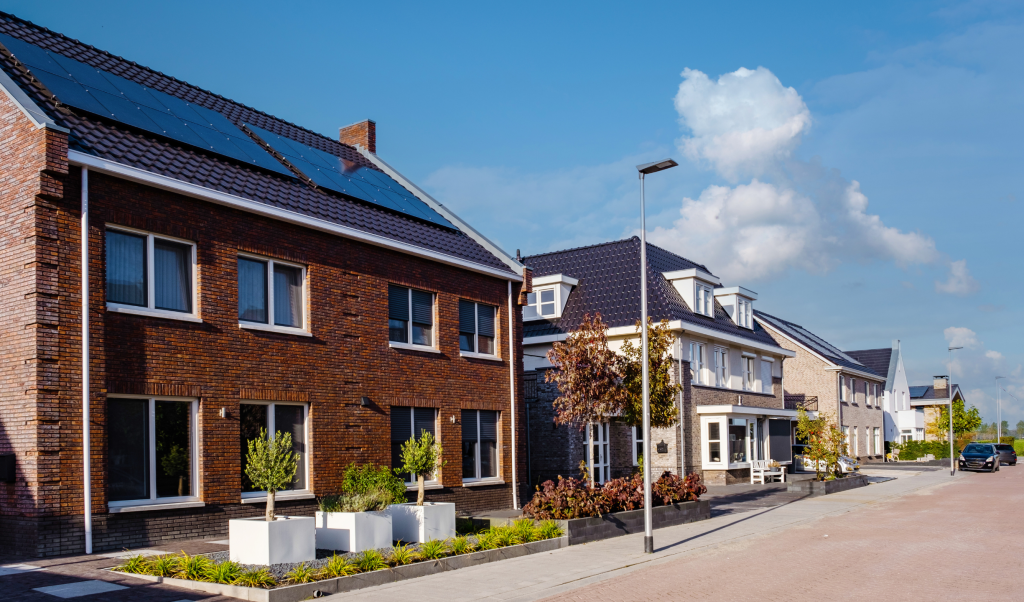When it comes to solar energy, many people assume that really hot, sunny days are the best conditions for maximum performance. However, that is not the case! In fact, higher temperatures have been found to reduce solar panel efficiency, meaning that they then don’t produce as much energy (reduced output). In this blog, we’ll look a bit deeper into how temperature affects solar panel efficiency, the implications for solar installations in Northern Ireland, and how you can optimise your system to achieve the best results year-round.
Understanding the Impact of Temperature on Solar Panels
Solar panels are designed to convert sunlight into electricity, but their efficiency is affected by more than just the amount of daylight they receive. Temperature plays a huge role in determining how well a solar panel performs. Solar panels are tested in laboratories at Standard Test Conditions (STC), whereby the panel efficiency is measured when the temperature of the solar cells themselves is 25°C, along with a measurement of 1000 W/m² solar irradiance, and no wind. When the solar cell temperature rises above this range, the performance of the panels can decrease. This is due to the physics of how photovoltaic (PV) cells work—higher temperatures create increased resistance within the cells, which then lowers the cell’s efficiency in converting sunlight into electricity.
However, panels often operate under Nominal Operating Cell Temperature (NOCT), which is more reflective of real-life outdoor conditions, with varying temperatures and irradiance taken into account. In general, when comparing two panels with similar STC ratings, the panel with the higher NOCT ratings will be a higher performing panel.

Temperature Coefficient of Solar Panels
Each solar panel comes with a temperature coefficient rating, which is a measure of how much the panel’s efficiency decreases with each degree Celsius increase in temperature above 25°C. For example, a typical temperature coefficient might be -0.3% per degree Celsius. This means that for every degree above 25°C, the panel’s efficiency drops by 0.3%. While this may seem small, on a hot day with the solar panel cell temperatures reaching 35°C, this could lead to a significant reduction in output/
Solar Panel Performance in Northern Ireland
In Northern Ireland, the average temperatures are relatively mild, even during the summer months, which can be beneficial for solar panel performance. The cooler climate helps maintain solar panels within or close to their optimal temperature range for much of the year. Even during the warmer months, typical summer temperatures in Northern Ireland rarely exceed 25°C, meaning that the impact of temperature on panel efficiency is usually minimal. This makes Northern Ireland an ideal location for solar installations, as the panels are less likely to experience the efficiency losses associated with higher temperatures seen in hotter climates.

Maximising Solar Efficiency in Cooler Climates
Despite Northern Ireland’s generally favourable conditions for solar, there are still steps that can be taken to ensure solar panels operate optimally. Proper installation is key—traditional on-roof solar panels systems mean that there is sufficient airflow around them to help dissipate any heat buildup. In addition, the solar panels installed by First Class Solar are top-quality, which means they also have lower temperature coefficients to make sure that any efficiency losses due to temperature fluctuations are minimised.
Weather Patterns and Seasonal Considerations
Northern Ireland’s weather is characterised by frequent cloud cover and rainfall, which can also affect solar panel performance. While clouds reduce the amount of direct sunlight reaching the panels, they also prevent panels from overheating, helping to reduce any temperature-related efficiency losses. What’s more, solar panels can still generate electricity from diffused light on cloudy days, albeit at lower levels compared to bright, sunny conditions. During the winter months, when temperatures are lower, panels often perform more efficiently, offsetting the shorter daylight hours.

Temperature plays an important role in the performance of solar panels, and understanding this impact helps us to maximise efficiency. In Northern Ireland, the cooler climate provides an advantage most people wouldn’t think of – by allowing solar panels to operate closer to their optimal temperature range for much of the year, we reduce any efficiency losses. It’s absolutely crucial to have your solar panels installed by a reputable and experienced team, such as First Class Solar, to ensure proper installation techniques that allow for effective heat dissipation and optimal performance. Consumers can also select panels with more favourable temperature coefficients, and considering local weather patterns, homeowners and businesses can ensure their solar systems perform at their best. Investing in solar energy in Northern Ireland is not only viable but has many advantages, thanks to the region’s mild temperatures that help sustain solar panel efficiency throughout the year.

